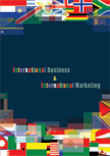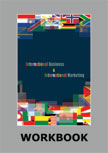Singapore: Past Perfect, Future Tense? |
ICMR HOME | Case Studies Collection
»
Business Environment Case Studies Please note: This case study was compiled from published sources, and is intended to be used as a basis for class discussion. It is not intended to illustrate either effective or ineffective handling of a management situation. Nor is it a primary information source. |
||||||||||
|
"Singapore's strengths lie in its strong intellectual property protection, pro-business attitude, talent pool, and a worry-free, stable environment."1 - Chan Yeng Kit, CEO, Infocomm Development Authority (IDA), in 2006. "Singapore is not the shining light it once was. There is a growing disparity between rich and poor and a corruption scandal at the country's largest charity…Nor is Singapore performing as well economically as it once did, with its gross domestic product growth rate slipping to 5 per cent, 1 per cent below the Asia-Pacific average."2 - An article in the South China Morning Post, in 2006. "Singapore is micromanaged by a state that has the look and feel of a very large corporation. There's a certain white-shirted constraint, an absolute humorlessness in the way Singapore Ltd. operates; conformity here is the prime directive, and the fuzzier brands of creativity are in extremely short supply."3 - William Gibson, American science fiction writer, in 1994. Introduction
Later in the mid-1960s, after a failed unification bid with Malaysia, the Government of Singapore (GoS) charted a roadmap for the city state's transition from a developing economy to a developed economy. The GoS adopted a national industrial policy in the early 1960s and set up several industrial estates. Singapore started off as a low-cost manufacturing hub and the pro-business attitude of the GoS made it attractive to several MNCs. Singapore's strategic location in the Asia-Pacific region also helped it become a major transit point, both for sea and air traffic.
Singapore: Past Perfect, Future Tense? - Next Page>>
1] "Singapore well-positioned to be a high-end BPO
hub,"www.ida.gov.sg, February 17, 2006. |
Case Studies Links:-
Case Studies,
Short Case Studies,
Simplified Case Studies.
Other Case Studies:-
Multimedia Case Studies,
Cases in Other Languages.
Business Reports Link:-
Business Reports.
Books:-
Textbooks,
Work Books,
Case Study Volumes.



